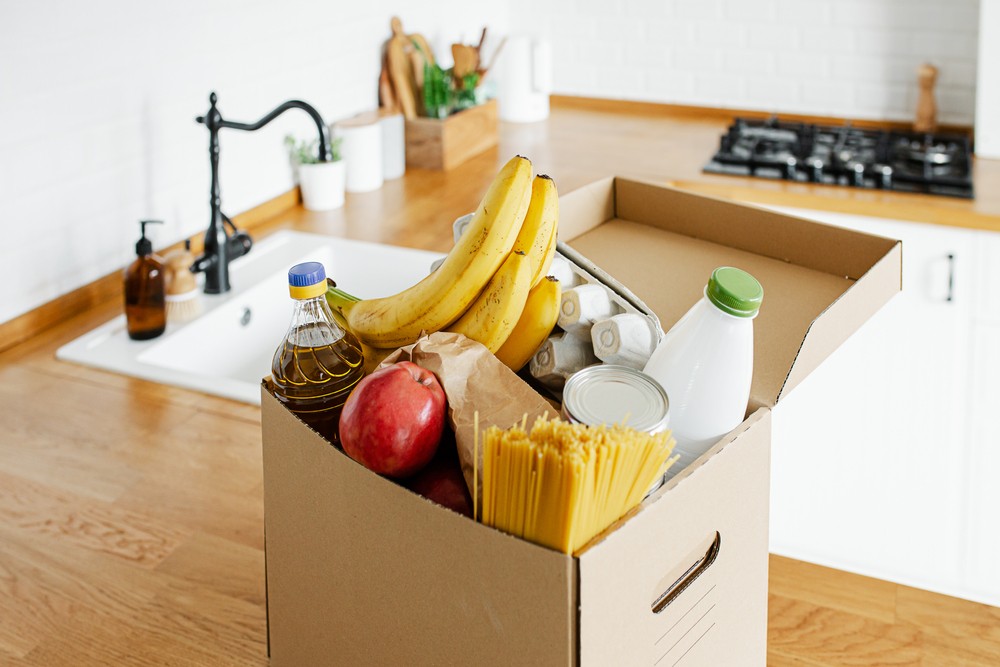Reducing food waste and saving on groceries are growing priorities for many households looking to make the most of their budgets while also making environmentally responsible choices. With food prices fluctuating and the cost of living rising, minimizing waste not only helps stretch every dollar but also contributes to sustainability by reducing the amount of discarded food that ends up in landfills. By adopting smarter shopping habits, strategic meal planning, and creative ways to use leftovers, families can maximize their groceries and prevent unnecessary waste.
Beyond the financial benefits, reducing food waste also helps conserve valuable resources like water, energy, and labor that go into food production. Simple adjustments—such as properly storing perishable items, utilizing food scraps in creative recipes, and being mindful of expiration dates—can make a substantial difference in both household expenses and environmental impact. Additionally, incorporating bulk shopping, freezing surplus ingredients, and repurposing leftovers can lead to more efficient meal preparation and long-term savings.
With a bit of planning, creativity, and conscious decision-making, consumers can significantly cut down on what gets wasted while still enjoying delicious, nutritious meals. By making food conservation a regular practice, households can reap both economic and ecological benefits, proving that small changes in daily habits can lead to significant rewards.
Plan Your Meals
The first step to minimizing food waste and saving money is effective meal planning. By outlining what meals you intend to prepare for the week, you can create an exact shopping list, ensuring that you buy only what you truly need. This strategy reduces impulse purchases and helps in keeping perishable items from spoiling before you can use them.
- Inventory Your Pantry and Fridge: Before heading to the store, take note of what you already have. This prevents the unnecessary purchase of items you might already own, reducing redundancy and eventual waste.
- Plan Around Ingredients: Create meals that share common ingredients. For example, a roasted chicken can be repurposed into sandwiches, salads, or soup throughout the week.
- Be Realistic: When planning meals, consider your schedule. If a busy week is ahead, opt for simpler, quicker meals rather than ambitious recipes that could lead to unused ingredients.
Shop Strategically
Your shopping habits can greatly affect both your spending and waste levels. Changing a few simple habits can lead to substantial savings.
- Set a Budget: Determining how much you can afford to spend on groceries each week can prevent overspending and encourage more thoughtful purchases.
- Avoid Shopping When You’re Hungry: Going to the grocery store on an empty stomach can lead to impulsive buying of unhealthy or unnecessary items. Make sure to eat something before heading out.
- Consider Buying in Bulk: For items with a longer shelf life, purchasing in bulk is often cheaper. However, avoid bulk purchases of perishable goods that you might end up throwing away.
- Embrace Store Brands: Store brands often provide the same quality as their branded counterparts but at a fraction of the cost.
Store Food Properly
Proper storage of food is essential to prolong its freshness and prevent spoilage. Knowing how to store different types of food can contribute significantly to waste reduction.
- Master the Art of Refrigeration: Store foods in the right places within your fridge. For example, dairy should be kept in colder sections, while produce may last longer in specifically designed drawers.
- Keep an Eye on Expiry Dates: Arrange items in your fridge and pantry so that those with the closest expiry dates are most accessible.
- Freeze Excess: Freezing is an excellent way of preserving many foods, including bread, herbs, fruits, and vegetables. Be sure to label items with dates before freezing them.
- Use Airtight Containers: For items like nuts, grains, and pastas, use airtight containers to prolong freshness and prevent pest invasion.
Get Creative with Leftovers
Maximizing the use of leftovers is a fantastic way to curb waste and stretch your food budget.
- Repurpose Meals: Transform leftover vegetables into a delicious stir-fry or soup. Meats from one night’s dinner can serve as the filling for tacos or wraps the next day.
- Experiment with Food: Sometimes combining odds and ends from prior meals can create something remarkably tasty. A half-serving of pasta and some grilled veggies can come together to form a satisfying meal.
- Practice FIFO: First In, First Out (FIFO) is a practice where older food items are consumed first, thereby reducing the chance of them going to waste.
Mindful Consumption
Making small, habitual changes in the way you consume food can lead to less waste and more savings.
- Control Portions: Serve smaller portions to prevent leftovers that may end in the trash. You can always go back for seconds if still hungry.
- Appreciate Imperfect Produce: Oddly-shaped or lightly bruised fruits and vegetables are typically just as nutritious and often sold at a discount.
- Use All Edible Parts: Cronstructively utilize items like broccoli stems or beet greens. These parts are nutritious and can enhance various dishes.
- Embrace “Best By,” Not “Expired”: Many foods are still safe to consume after their best-by date, so assess their quality instead of relying strictly on dates.
Composting
Even when you strive to use all your food, some waste is inevitable. Composting serves as a productive way to utilize scraps productively.
- Compost Scraps: Collect vegetable peels, coffee grounds, and eggshells to create nutrient-rich soil. This reduces the amount of waste heading for landfills and supports sustainability.
- Start Small: A simple compost bin can be kept on your kitchen counter or balcony, making it accessible even in urban environments.
- Use Compost in Gardening: If you grow your own herbs or vegetables, use your compost to enrich the soil. This forms a cycle of food production and sustainability.
Supporting Sustainable Practices
Choosing to support sustainable farming and food production practices helps build a market that values the environment and reduce waste.
- Buy Locally: Purchasing food from local vendors reduces transportation waste and supports regional economies.
- Choose Seasonal Foods: Seasonal produce is typically fresher, tastier, and less costly; it requires fewer resources for cultivation and distribution.
- Support Farmers Markets: Farmers markets often sell fresh produce without the excess packaging found in conventional grocery stores.
By adopting these smart strategies, consumers can significantly reduce their food waste while saving money on groceries. Transformations in daily habits, such as planning meals, conserving leftovers, and supporting local produce, can make a substantial impact on budgets and the environment. Plus, these changes bring a sense of well-being that comes from being financially savvy and ecologically responsible. Whether it’s controlling portions, storing food effectively, or composting, each small step counts toward fostering a lifestyle that appreciates the true value of food.



